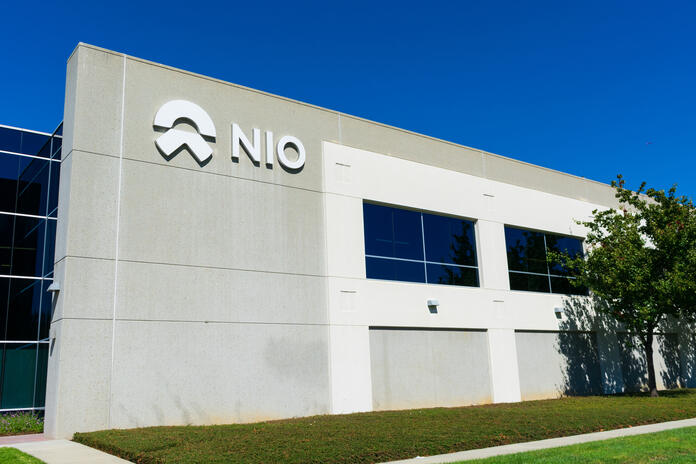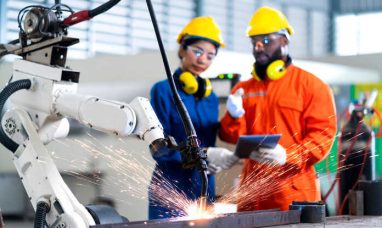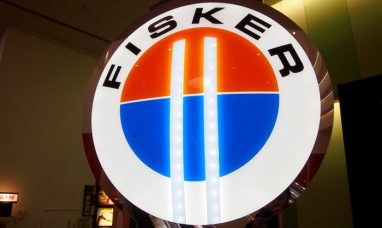NIO Inc (NYSE:NIO)
NIO, a Chinese company that manufactures electric vehicles, also wants to get into the electric battery business. It is a tactic utilized by the majority of automobile manufacturers in the present day, and the pattern is a little unsettling to the most significant battery manufacturer in the world. Yesterday, the value of NIO’s stock dropped by more than 3 percent on the market. At the time of publication, the price of one share of NIO stock on the market was $9.79. It is currently unknown what caused the drop, but one possible explanation is the impending earnings report that the company will be releasing. On the other hand, the most recent information concerning their battery plant might be able to help them move into a better position.
According to a report that was published on Friday by Reuters, the Chinese company NIO (NYSE:NIO) intends to construct its first electric vehicle battery plant, which will have an annual capacity of 40 gigawatt hours. A request for comment from NIO regarding the plans was not immediately met with a response.
Contemporary Amperex Technology Co (300750. China), more commonly referred to as CATL, is the world’s largest battery producer and the current NIO supplier. However, in the future, car companies that own their own battery capacity might mean less business for CATL.
It’s possible that the possibility of losing business was one of the motivations behind CATL’s recent announcement of a new pricing strategy that would see the company supplying automakers with batteries at an embedded cost of approximately $30,000 per metric ton for lithium. The spot price of lithium is approximately $70,000 per ton at the moment.
Sizeable savings are yours to enjoy. Since lithium-ion batteries rely heavily on lithium, its price has roughly multiplied nine times over in the last few years. Lithium-ion batteries are becoming increasingly popular. This has made it more challenging for automobile manufacturers to produce electric vehicles in a profitable manner.
The majority of automakers have recently announced their intentions to increase battery capacity in response to rising prices and a desire to maintain control over key components in the supply chain for electric vehicles (EVs). Battery manufacturing facilities are either already in operation at General Motors (NYSE:GM), Ford Motor (NYSE:F), and Chrysler parent Stellantis (NYSE:STLA), or are in the planning stages at each of these companies.
The construction of many new battery plants by automobile manufacturers involves the participation of battery suppliers as partners. For its battery capacity, for example, General Motors is collaborating with LG Energy Solution (373220.Korea), a Korean company. Recently, Ford made an announcement that it would be licensing technology from CATL and using that technology in a battery plant that will be constructed in Michigan.
According to the report by Reuters, it is unclear whether NIO will build its battery plant alone or in collaboration with another company.
It’s not just because of the high cost of batteries that automakers are having trouble turning a profit on electric vehicles. Scale is yet another important factor to consider. Tesla TSLA (NASDAQ:TSLA), and BYD are the only two electric vehicle manufacturers that have demonstrated consistent profitability.
In the year 2022, Tesla produced more than 1.3 million vehicles. Approximately 911,000 battery-electric vehicles and approximately 950,000 plug-in hybrid vehicles were among the nearly 1.9 million electrified vehicles that BYD manufactured. For example, Stellantis manufactured approximately 288,000 battery electric vehicles in the year 2022. Before reaching a production rate of approximately 400,000 vehicles per year, Tesla struggled to turn a consistent profit.
It’s possible that scale is even more important than how much batteries cost. Even though Tesla (NASDAQ:TSLA) is a battery manufacturer in its own right, the company also buys batteries from third-party vendors like CATL.
Naturally, CATL also benefits from being on such a large scale. In the year 2022, the company manufactured almost 200-gigawatt hours worth of batteries. That was almost forty percent of the total output worldwide in the previous year.
CATL is looking to keep its market share as high as possible and has noticed a trend toward automaker-owned battery capacity. These are the most likely reasons why the company is effectively using its scale to discount batteries by incorporating a lithium price that is lower than the market average.
It will be interesting to see if any of the plans that automakers have for building battery plants are derailed as a result of CATL’s lower prices. According to the report from the NIO, it has not happened as of yet.
In premarket trading on Friday, the price of NIO stock fell by 1%. Futures contracts for the S&P 500 (SPX –1.36%) and the Nasdaq Composite (COMP –1.95%) are currently trading 0.6% and 0.9% lower, respectively. In overseas trading, CATL shares are currently valued at 1.9%.
Since CATL announced its new pricing strategy and Wall Street began analyzing it, the company’s stock price has dropped by almost 9 percent.
Featured Image: Megapixl © Michaelvi









